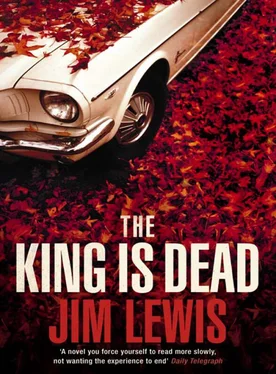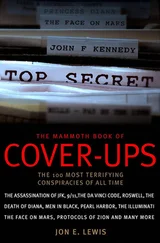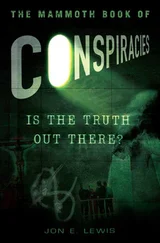By then Lucy Cash had returned to Chicago, and after Appomattox she and her mother moved south to Memphis, Tennessee. At Annabelle’s insistence they pretended to be a young white woman with her aged and loyal servant—but in truth the older woman was nearly insane. Memphis had been in Union hands since the middle of the War, but she wanted to be within defaming distance of the former Confederacy: The two of them moved into a rooming house and the girl took a job sewing for a local tailor; and every evening Annabelle Cash would venture out onto a bridge over the Mississippi, where she would spit down into the water, and let the river carry her insult down.
Years passed—ten years, fifteen years. Lucy Cash had become a spinster, while her mother died a long, slow, puzzled death. The daughter was thirty-two; it was unlikely that she would find a husband, and a child was almost impossible to conceive. The daughter was thirty-three, thirty-four. And then one summer morning Annabelle awoke with a chill, complained briefly, and died, leaving Lucy Cash alone with her inheritance.
What happened then became a legend in Memphis: Lucy Cash moved out of the rooming house and into a small but elegant place on the north side of town. She hired a cook and a handmaid, bought chandeliers for the house and dresses for herself, and began to throw parties for young women and men. Within a year she was among the city’s most prominent belles, fifteen years too old but no one seemed to care; the yellow-fever epidemics of the 70’s had killed many of the younger women who might have been her rivals, and besides, the gatherings at her home were so elegant, so lively, the hostess was so charming and so duskily pretty. And in time she had her suitors: a pale and wealthy middle-aged man with a horse farm, a young rich gadabout, the blond boy born to a prosperous merchant, and the son of a minister, named Benjamin Harkness.
Having a keen sense of the mystery of salvation, Lucy Cash married the minister’s son. Her wedding took place just a few days before her thirty-seventh birthday, and exactly 280 days later the first of her four children were born; they would be Sally Harkness (b. 1879), and then Benjamin Jr. (b. 1880), and Charles (b. 1881), and finally Katherine Anne (b. 1883). The two daughters were prolific from a young age, producing a total of eleven grandchildren for Lucy Cash, none of whom she’d see or hold; she died of tuberculosis in 1892, revealing only on her deathbed, and only to her two boys, that she was one-half Negro.
In 1899, at the age of nineteen, Benjamin Harkness, Jr., went north to work for big steel, staying briefly in Philadelphia before being sent out to San Francisco to oversee the development of supply lines from the port. It was an unruly town, and being the grandson of a minister born to the privilege of wealth, he took full advantage of the sins of the Barbary Coast. By day he shuffled papers in his Russian Hill office; at night he gave syphilis and cirrhosis a run to see which could kill him first. In the end, the waves preempted both; stumbling home from a wharfside saloon late one night, he fell into the Bay and was drowned.
Charles Harkness was a dull and dutiful man, less ambitious and less lively than his brother, but his blood survived. He finished college, married a woman named Alice, and became a wholesaler of dry goods. Around Louisville, Kentucky, where he lived, they called him Gain for the number of his offspring: Charles Jr. (b. 1904), George (b. 1905), Diana (b. 1905), John (b. 1906), Robert (b. 1906), the twins Mary and Elizabeth (b. 1908), Patrick (b. 1910), David (b. 1911), and the second twins, Emily and Irene (b. 1913).
As soon as she was old enough to leave the house, Diana went north to New York—to study art at the city’s great museums, she told her father, but in reality to play amid its prosperity. Many nights she came home to her Riverside Drive apartment giggling and trailing black feathers from her boa across the lobby; many mornings she sat on the edge of her bed and wept—in despair at her loneliness, in pity because she was lost. Later, she would marry a bad man named Selby in a lavish church wedding; six months passed and she had her first son, Donald; a year and a half afterward she divorced her husband, not telling him that she was going to have another child. It was a second boy, Walter, born in 1925 in his grandfather’s house in Louisville, but cared for by Diana, until one day in 1937 when she stepped in front of a car on West Oak Street, was struck and thrown, lived on for three more days, and then passed away.
When Walter Selby was eighteen he enlisted in the Marines and was sent to fight in the Pacific War. In 1945 he came home a hero, finished college in two years on the GI bill, and then went to law school at Vanderbilt. Afterward, he settled in Memphis, the home of his great-grandmother, where he went to work for the governor of Tennessee. He met a woman named Nicole, he loved her more than love knew how; he married her and they had two children, a boy named Frank, and a girl, four years younger, named Gail. This book is their annals, twice-told and twofold.
Dearest Father:
You asked me recently why I maintain that I am afraid of you….
—Franz Kafka, “Letter to His Father”
Nicole’s hand was warm and damp. Three-thirty had come, the Governor hadn’t called—nor had anyone else—and Walter Selby had gone home lively to his wife, happy to have some time to spare before dinner. He was still thinking about work, running phrases for a speech through his head, but he wasn’t thinking hard. It was an afternoon toward the end of May, and he was enjoying the last hours of sunlight, along the street, under the shade of the pin oaks. To see his own house in the late sunlight of a spring weekday was a rare pleasure, and not one he wanted to squander.
To see his own wife. He parked in the driveway and emerged into a noiseless world; some money had bought that quiet, that still and green street. He could hear his steps on the walk, the hiss of the spring on the hinge of the outer door. He had his key in the lock and he paused to prolong the homecoming moment. These were instants he liked to savor: the border, and just across the border, where he would call Nicole’s name and then wait for her to answer, wait and wonder where her voice would come from, where she would appear. In the years since they’d married the process had taken on a formal quality, and the closer it came to ritual the more it delighted him; the smell of his own house delighted him, the weather dampening, the day-late hour, the light lengthening across the lawn, his anticipation lengthening along the front hall.
It was a Wednesday, and the Governor was back in Nashville, appearing at a hearing in the State Senate about advisory appointments; he would be strolling amiably down the aisle right about now, dressed in his thin grey penitent suit, a half smile on his face while he shook alike the hands of men he enjoyed and men he despised. Then he would take to his table, sit down slowly, and drop a tablet of bicarb into his water glass to distract his interlocutors while he composed himself. The water would remain fizzing at his elbow until his remarks were done, at which point he would stand up, take the glass and down its contents quickly, and then stroll out of the room again, smiling again, shaking hands, whispering.
The Selby house was quiet. Frank and the baby would be in the park with Josephine, the nanny they’d hired soon after Gail was born. This was Nicole’s own time, the part of the day when she could do what she liked, and Walter seldom interrupted her with so much as a phone call. There was some mystery in every marriage, or else there was no material left for later intimacies—for the hours after the children had been put to bed, to save and to spend, repairing the ragged forward edge of their affairs. Away from others, away from work, toward the night.
Читать дальше












